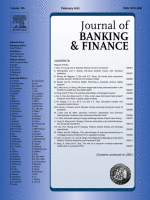
Lo más reciente
How does the expansion of domestic banks in international markets affect the bank lending channel of monetary policy? Using bank-firm loan-level data, we find that loan growth and loan rates from international banks respond less to monetary policy changes than domestic banks and that internationalization partially mitigates the risk-taking channel of monetary policy. Banks with a large international presence tend to tolerate more their credit risk exposition relative to domestic banks. Moreover, international banks tend to rely more on foreign funding when policy rates change, allowing them to insulate better the monetary policy changes from their credit supply than domestic banks. This result is consistent with the predictions of the internal capital markets hypothesis. We also show that macroprudential FX regulation reduces banks with high FX exposition access to foreign funding, ultimately contributing to monetary policy transmission. Overall, our results suggest that the internationalization of banks lowers the potency of the bank lending channel. Furthermore, it diminishes the risk-taking channel of monetary policy within the limit established by macroprudential FX regulations.
 Adriana Paola Morales-Acevedo,
Adriana Paola Morales-Acevedo, 
 Juan Sebastián Lemus-Esquivel,
Juan Sebastián Lemus-Esquivel, 